Tatiana Maslany Says Goodbye to 'Orphan Black'
Now that the cult-favorite show has come to a close, its Emmy-winning star is shedding her myriad characters and leaving just one: herself.
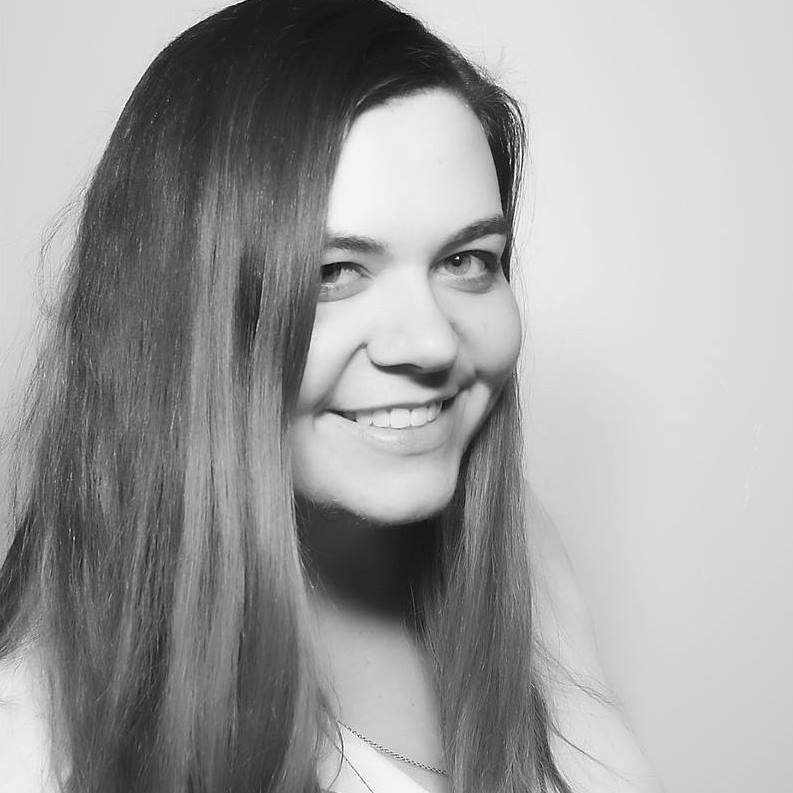
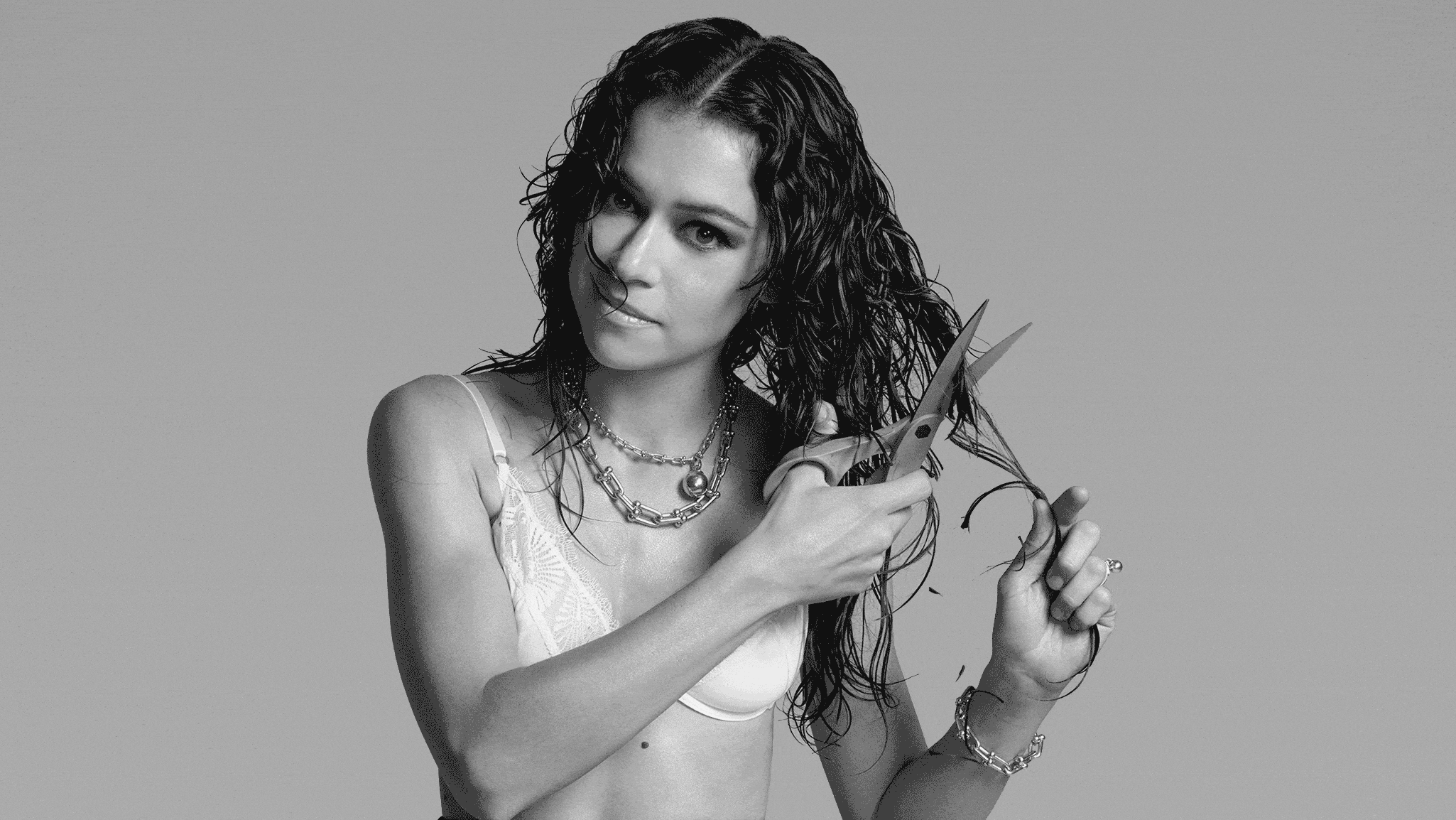
It was all of two-and-a-half minutes into the premiere of BBC America's Orphan Black (this story contains spoilers about the series finale) when viewers realized that the show—which began with a woman witnessing the suicide of a stranger who happened to look exactly like her—was something special.
But not even star Tatiana Maslany could have guessed that the series would introduce a breathtakingly sprawling mystery about human clone sisters navigating morality, philosophy, genetics, feminism, family, and a complicated conspiracy that doesn't necessarily tie up into a neat bow at the end (sorry, Clone Club).
"I knew up to episode two," Maslany explains of what she expected when shooting started. "I didn't even know Helena existed until I was on set filming episode two of season one, and saw the next script and she shows up in episode three. I didn't know anything about where the plot was going. I was just like, 'How do we do this? How is this going to be possible?' What a cool challenge to face."
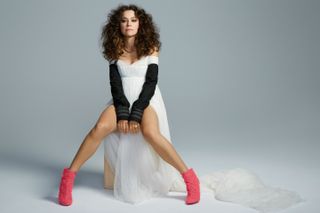
Gown, Vera Wang; Necklace and rings, Cartier; Booties, Christian Louboutin
In the series finale, the clones (each personality crafted so masterfully by Maslany that it's easy to forget she plays them all) finally take down the man known as P.T. Westmoreland (Stephen McHattie)—who turns out not to be a 170-year-old genius responsible for discovering the key to genetic supremacy, but rather a 70-something egomaniac obsessed with immortality—and his deputy, Virginia Coady (Kyra Harper), presumably toppling their Neolution movement in the process.
"Playing so many strong and smart women who take down a mediocre man—it was the best."
Though the episode doesn't answer every question of the five-season-long, ultra-complex story, the final moments show each clone living her newly free life: Alison and Donnie (Kristian Bruun) co-habitating in their suburban domestic bliss and helping new mom Helena raise her twins; Cosima and Delphine (Evelyne Brochu) off hunting for the rest of their 274 clone "sestras" in an effort to cure their clone-borne disease; and Sarah, foster brother Felix (Jordan Gavaris), and daughter Kira (Skyler Wexler) moving on as a family after the death of their foster mother, Mrs. S (Maria Doyle Kennedy).
A few days before the finale, MarieClaire.com sat down with Maslany to get those answers. In a Los Angeles coffee shop just a short walk from the home where she and her boyfriend, Welsh actor Tom Cullen, recently settled down, the 31-year-old Canadian beauty opened up about the show that changed her life, how science fiction is a lot more like our current reality, and what's next on her horizon.
On closure for the clones:
"The finale was sort of like a two-parter—it had high-action intensity in the first half that felt connected to the world that we've been living in, which is so extreme and horrifying. But what I was really excited about, and what I think we were all interested in, was that quiet after—what happens when you actually have freedom but people aren't able to move on? Like, Sarah is in this stasis where she's doing all the right things but she's not behind them. She's not there. She hasn't fully accepted the loss of S or really embraced the fact that now she can do whatever she wants.
Stay In The Know
Get exclusive access to fashion and beauty trends, hot-off-the-press celebrity news, and more.
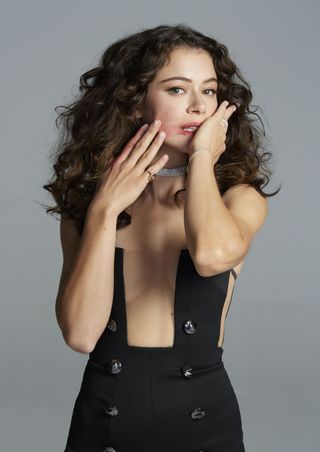
Jumpsuit, Julien MacDonald; Choker, Djula; Ring (on pinky), Cartier; Diamond rings, Anita Ko; Heels, Giuseppe Zanotti
One of my favorite endings is Rachel's because it's ambiguous. We don't know what she's going to do now. She's completely alone. She's been completely incapacitated in terms of everything that's given her power and value in the past, and now she's this blank slate going off into the world with no one.
She's still left out of the world of the other clones; it's still not her world to be in. I think she is who she is and I don't know that she would ever surrender completely. I don't think it's a surrender in terms of, like, the bad guy surrenders or whatever, but it's a surrender of power—which she does through giving Felix that complete list of clones. But she still can't go into that room where she's not invited. Her journey has really always been so interesting to me.
[I'm] really taking time to grieve the show and let it go and not rush into the next thing.
Cosima and Delphine got a happy ending. They've gone through the wringer in terms of everything—distrust from day one and always being on two sides of the system. It was important to us to show that as a gay couple they could have a normal and have a happy life, and that it was about using their skills to stop this from ever happening to anybody else—that as much as it is a nice time, they still have to go out there and make sure that they're finding these women before it's too late.
We were going to have a montage at the end after the clones learn that there are 274 of them in the world that was like, this one working at her desk, this person over here...but then we were like, 'We don't have any time to shoot this. That's like 70 costume changes, this is not going to happen.'"
On P.T. Westmoreland:
"Given the political climate right now, it's really interesting to have the person at the top be this desperately insecure, powerful, yet completely inept being—this guy, this patriarch who is completely self-motivated and doesn't have any interest in whose lives he's destroying. It's all about him and all about sustaining life, this legacy of his life that he wants to create. It's such an empty thing. One of my favorite moments of the finale is when he's telling Sarah who she is and how he'll always be in her and she just bashes his head in and that's it. And it's just like, 'Shut up. Just stop fucking talking. I don't want to hear that anymore.'
Of all the evil characters on the show, his was the most satisfying death, just because it ended up being such an unceremonious one. It was sort of pathetic. I mean, there's a fight, obviously, but he's just an old man who needs to go. And I think Sarah's just fed up, done with it. That's the first kill she's ever done, as well. I mean, Helena was kind of a soft first kill because she came back."
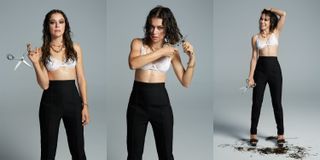
Bra, Gooseberry Intimates; Pants, Salvatore Ferragamo; Jewelry, Tiffany &Co; Heels, Olgana Paris
On Helena's hair:
"I guess it just stuck. The roots just grew out a little bit over 20 years! I think that she's been marked somehow, and I think because she also discovers that she's a copy, she wants to be different from these people she's killing. She's marking herself and she has defined herself by her trauma, almost. She has ingested it as part of her.
I think she literally gets a bucket of bleach and sticks her head in it. It's like her cutting of her back, it's a self-flagellation thing."
On Kira's sixth sense about the clones:
"I think what Graeme [Manson, co-creator and executive producer] was playing with a little bit is that it's just this empath thing that she has through a biological, spiritual connection. I think you can get that with siblings, too. I have it with my brothers, where my brother and I will be on the phone and I know what he's going to tell me even though he hasn't told me yet. It's just a deep bond that is not scientific and not explainable in concrete terms."
On bringing back old characters:
"The problem with this season was that it was so jam-packed with so many things to get through and so many characters that we had established that we wanted to flesh out further, as opposed to bringing in a whole bunch of new people. That's why there wasn't really a new clone except in the very last second. You see Tony's photo in the finale, but we didn't want to bring Tony in unless he had something vital to do and it wasn't just, 'Remember that guy?' So I think it was about streamlining it to the five main clones that we got to know over the seasons."
On her favorite clone:
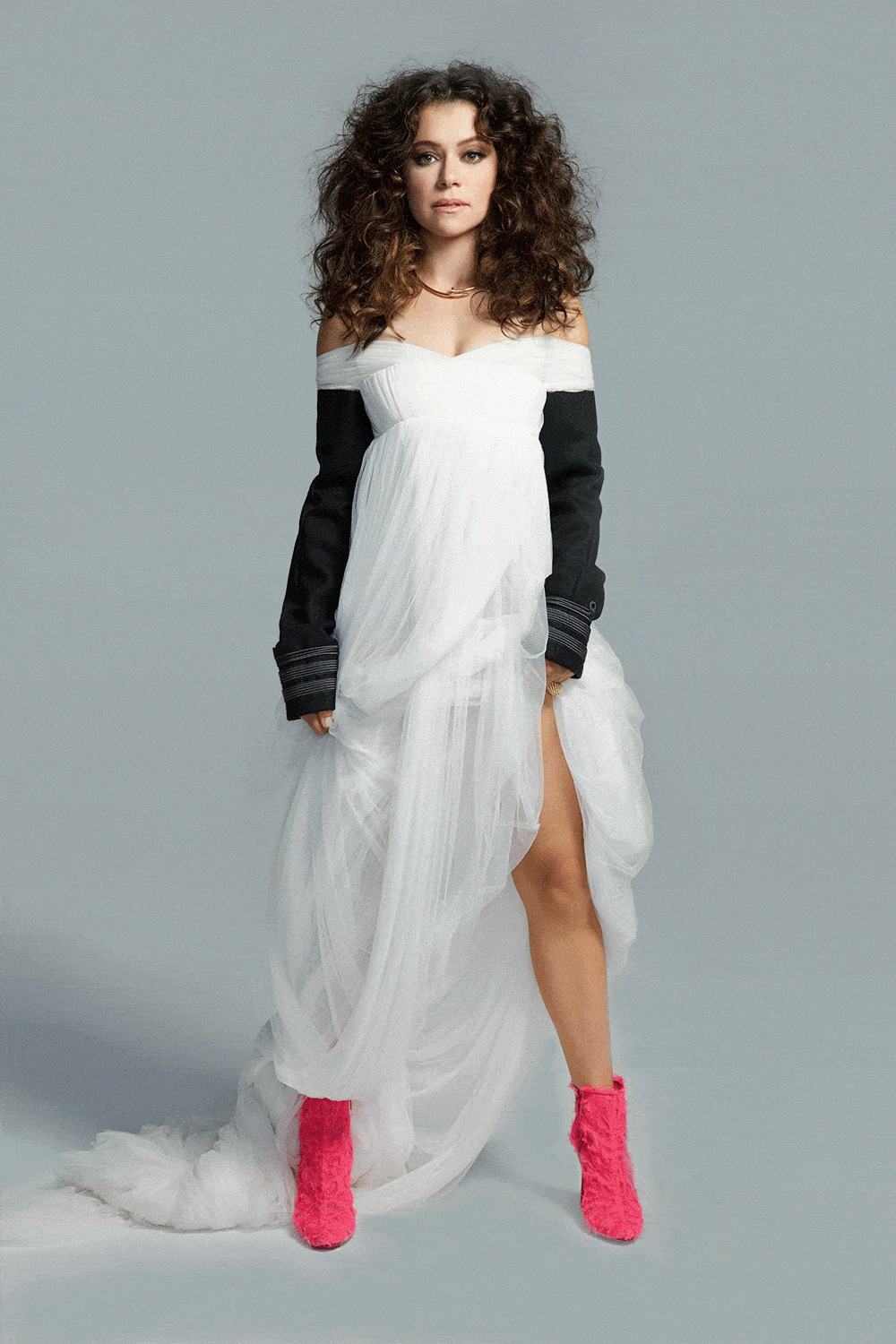
"I enjoyed playing Rachel the most. She is completely opposite of anybody I'd ever be cast as otherwise. She terrified me constantly.
There's something about Helena or Alison or Sarah or Cosima that I can physically feel, that I understand, but Rachel was so different, so contained, so entitled and powerful and elegant, moneyed and all of that, which is everything I sort of judge and don't feel connected to. So it was really fun to always find the empathy with her and find what the connection was there.
Given what was going on politically while we were shooting it, it was really fun to play a clone who thought she could be outside of the system, who didn't see herself as the same as all these other women, who sought to control it even though it was always going to control her. It was really fun to play these people who think they're better than or think they're outside of the humanity of other people."
On shooting the last episode:
"Filming the backyard scene with all the clones was insane. We shot that over two days and it took a lot of rehearsal beforehand just to get the simple thing of handing off a glass of wine or a bottle of beer or whatever. It was so fun because it didn't have any real pyrotechnics in it; it was just them relating to each other and all their insecurities and the things that they can't totally accept in themselves, these parts of themselves that kind of unite them. It was awesome because obviously Kathryn Alexandre was there, who's my clone double, who has worked with us since before season one, who has always been there. I always love working with her. And Bailey Corneal, who was my stand-in from the second season on, she's stepped in a few times and played Helena or Alison. So it's always fun to have that couple of girls together.
[My boyfriend] was in Orphan Black—he was Krystal's ex-boyfriend, the guy I kicked in the balls.
They brought in a new clone in the finale, a Colombian, Camila Torres. It was so intense because they were writing the last episode as we were shooting the ninth, so it was so fast. And they were like, 'Oh, P.S., we think she's Colombian, and she speaks only in Colombian dialect.' I was like, 'Uh huh.' They were like, 'That's on Thursday.' It was Tuesday. I was like, 'Cool.' They're like, 'Also, learn this piece of music for Alison to play in that last moment.' I was like, 'Great.'
I took Spanish in high school, but I don't play piano. Now I do! And Kristian did a real strip tease. It was a really sexy, emotional strip tease where I'm trying to play the piano. It was his last Alison and Donnie scene, so we were both crying through that whole scene. He gave me those sweat bands that Donnie wore. I still have them.
The last thing we filmed was Coady dying with Helena stabbing her through the throat. I think the very last shot was actually an insert shot of me grabbing the weapon, so it's just my hand. But the cool thing about shooting that scene last was that Kevin [Hanchard, who plays Art] was there. Kevin was there on day one. He shot the very first scene on the series, so it was nice to come full circle."
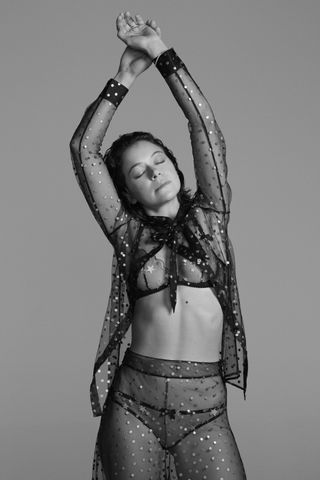
Top and pants, Jill Stuart; Bra and panty, Agent Provocateur; Jewelry, Anita Ko; Heels, Minna Parikka
On the show's title:
"We finally learn the explanation for the title in the finale—it's the name of Helena's journal. It was just kind of weirdly arbitrary in her head. It felt super weird to say the line that reveals it, because I was just like, 'How do I take the curse off of saying this out loud?' I still don't know why she named it that! I have no idea. Somewhere in her brain it makes sense."
On the impact of Orphan Black:
There are people who are dating now who met their partner through Clone Club. That is just such a cool legacy.
"There's something really cool that came out of this show, which is this Clone Club community that impacted the way we've told these stories and our awareness of how fiction can effect change. It's a community that embraces its differences and embraces people for who they are and is really supportive. There's no infighting in that fan club and no discrimination. It's just beautiful. There are people from Australia and Detroit who have met up, talked about the show and bonded over it, and they've forged relationships. There are people who are dating now who met their partner through Clone Club. That is just such a cool legacy that's been left by the show, but mostly by the people who have watched the show."
On feminism:
"Playing so many strong and smart women who take down a mediocre man—it was the best. It was getting to put all the rage and fear and disappointment and need for action into our work. We were telling that story from day one about autonomy, and about community as opposed to individual, and about our differences actually uniting us and making us stronger. So to get to actually talk about this mediocre man at the top, take off his head, it was really cathartic. I remember the Women's March was happening when we had press so I couldn't go, which was totally devastating. But we were reading this script that was saying the things we all wanted to say and we were having these discussions on set constantly. And it was all feeding back into the work. I'm so grateful I was on a show where I got to do that, because I don't know how I'd get through it otherwise."
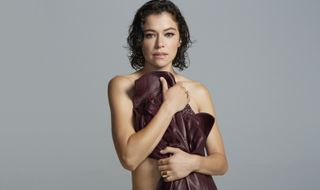
Trench coat, Versace; Ear cuff (worn throughout), Anita Ko; 'Love' ring, Stephen Webster Tracey Emin; all other rings, Vhernier; Heels, Pierre Hardy
On what's next:
"Stronger [a film about the Boston Marathon bombing] will be out in September. It's an amazing story of survival and love. I don't know how people go through something like that and come out the other side of it, but they did. It's with Jake Gyllenhaal, who's unbelievable, and David Gordon Green directed it. It was really wild to do.
I'm also doing a movie that my boyfriend is directing. He just got funding for this very small-budget indie movie and we're in the throes of figuring that out right now. He's never directed me before, but we've acted together. We've worked together on a movie called The Other Half, which came out at SXSW two years ago. And he was in Orphan Black—he was Krystal's ex-boyfriend, the guy I kicked in the balls.
But I haven't done too much in the last few months other than creating stuff for myself and with a few friends. Really taking time to grieve the show and let it go and not rush into the next thing. I visited my little brother and my middle brother we just went on hikes and had coffee. Then I visited my boyfriend in the U.K. and we went away for a bit. And also I just slept. I rediscovered sleep."
On the set of our photo shoot in Los Angeles, Maslany had a little fun with the clones—watch here:
Photography by Brooke Nipar · Styling by Lysa Cooper · Hair by Creighton Bowman using Laced Hair Extensions & Oribe at TMG-LA · Makeup by Elaine Offers for Exclusive Artists using NARS Cosmetics · Special Thanks to Smashbox Studios
Jean Bentley is an entertainment reporter who has written about television for Marie Claire, E! News, Mashable, Nerdist, MTV, Entertainment Weekly, and many more. She loves Law & Order: SVU so much that her cat is named Olivia Benson (before Taylor Swift, thankyouverymuch).
-
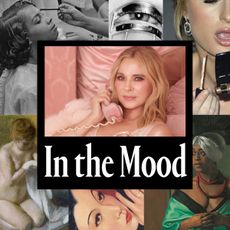 Kim Cattrall’s Secret to a Refreshed Morning Gives Her Goosebumps
Kim Cattrall’s Secret to a Refreshed Morning Gives Her GoosebumpsIt's "invigorating."
By Samantha Holender Published
-
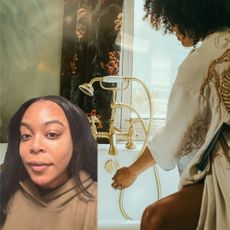 Acne Doesn’t Stand a Chance Against the (Somewhat Chaotic) My Morning Routine
Acne Doesn’t Stand a Chance Against the (Somewhat Chaotic) My Morning RoutineKeep the texture and irritation at bay with these editor-vetted items.
By Ariel Baker Published
-
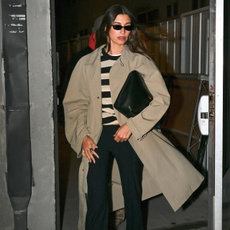 Hailey Bieber’s Just as Obsessed With This ‘90s Hair Accessory As the Rest of Us
Hailey Bieber’s Just as Obsessed With This ‘90s Hair Accessory As the Rest of UsThe new mom was spotted in this Fashion Week-approved trend while running errands.
By Ariel Baker Published
